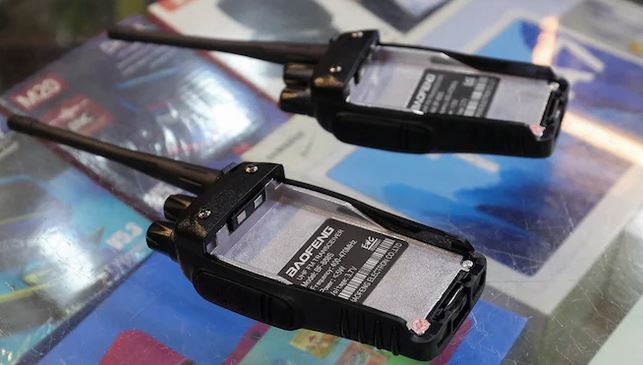A series of unprecedented explosions across Lebanon this week, involving pagers and walkie-talkies used by Hezbollah, has left 32 people dead and more than 3,000 injured. The attacks, spanning two days, have delivered a significant blow to the Iran-backed militant group, which has accused Israel of orchestrating the blasts. Hezbollah leader Hassan Nasrallah is expected to address the nation later on Thursday, with many anticipating his remarks on the group’s potential response.
What Happened?
On Tuesday, hundreds of pagers carried by Hezbollah operatives exploded almost simultaneously in Hezbollah-controlled areas, including south Beirut, eastern Lebanon, and the country’s south. The blasts resulted in the deaths of at least 12 people, including two children, and injured up to 2,800, according to the Lebanese health ministry.
The following day, a second wave of explosions involving walkie-talkies struck Hezbollah strongholds, killing 20 more people and injuring over 450. During a funeral for Hezbollah militants killed in the initial blasts, an explosion went off, causing panic as mourners fled for cover.
Lebanese Health Minister Firass Abiad explained that the second wave was deadlier due to the larger size of the walkie-talkies used. Hezbollah, which had already expressed concerns over the security of its communications following recent Israeli strikes, now faces a new threat with these unprecedented attacks.
Israeli Involvement?
Israel has not officially commented on the attacks. However, before the first wave of explosions, Israeli authorities had announced plans to strengthen security along its northern border with Lebanon. The announcement came as part of Israel’s ongoing efforts to combat Hamas following the militant group’s October 7 attack.
Since that incident, Hezbollah has been engaged in frequent skirmishes with Israeli forces along the Lebanon-Israel border. Although not officially a war, the conflict has resulted in hundreds of casualties on the Lebanese side, mostly Hezbollah fighters, and dozens of deaths on the Israeli side.
Israeli Defence Minister Yoav Gallant hinted at an intensification of the conflict, stating that the “centre of gravity is moving northward,” a possible reference to the escalating tensions along the northern front with Lebanon.
How Were the Attacks Carried Out?
The attacks are considered highly effective due to their unusual nature — using Hezbollah’s own communication devices as weapons. Preliminary investigations by Lebanese authorities suggest that the pagers were booby-trapped with explosives before being delivered to Hezbollah. A source close to the group stated that the pagers were “recently imported” and likely “sabotaged at source.”
Some of the devices that exploded were reportedly manufactured by Taiwanese company Gold Apollo, but produced by its Hungarian partner BAC Consulting KFT. The Hungarian government clarified that BAC Consulting was a trading intermediary without a manufacturing site in Hungary. Additionally, the walkie-talkies involved in Wednesday’s blasts were models that Japanese company Icom stopped producing around a decade ago.
Was Israel Behind the Attacks?
While Israel has not claimed responsibility, Israeli media and experts have pointed to the possibility that Mossad, the country’s intelligence agency, may have been behind the operation. Some commentators have described the attacks as another example of Israeli intelligence’s ability to infiltrate and disrupt its adversaries.
The attacks come nearly a year after Hamas’s October 7 assault on Israel, an event that has been widely criticized as a failure of Israeli intelligence. These explosions, however, have been seen by some as a demonstration of Mossad’s operational precision and reach.
As Lebanon reels from the shock of these attacks, all eyes are now on Hezbollah’s next move, with Nasrallah’s upcoming speech likely to signal the group’s intentions.



